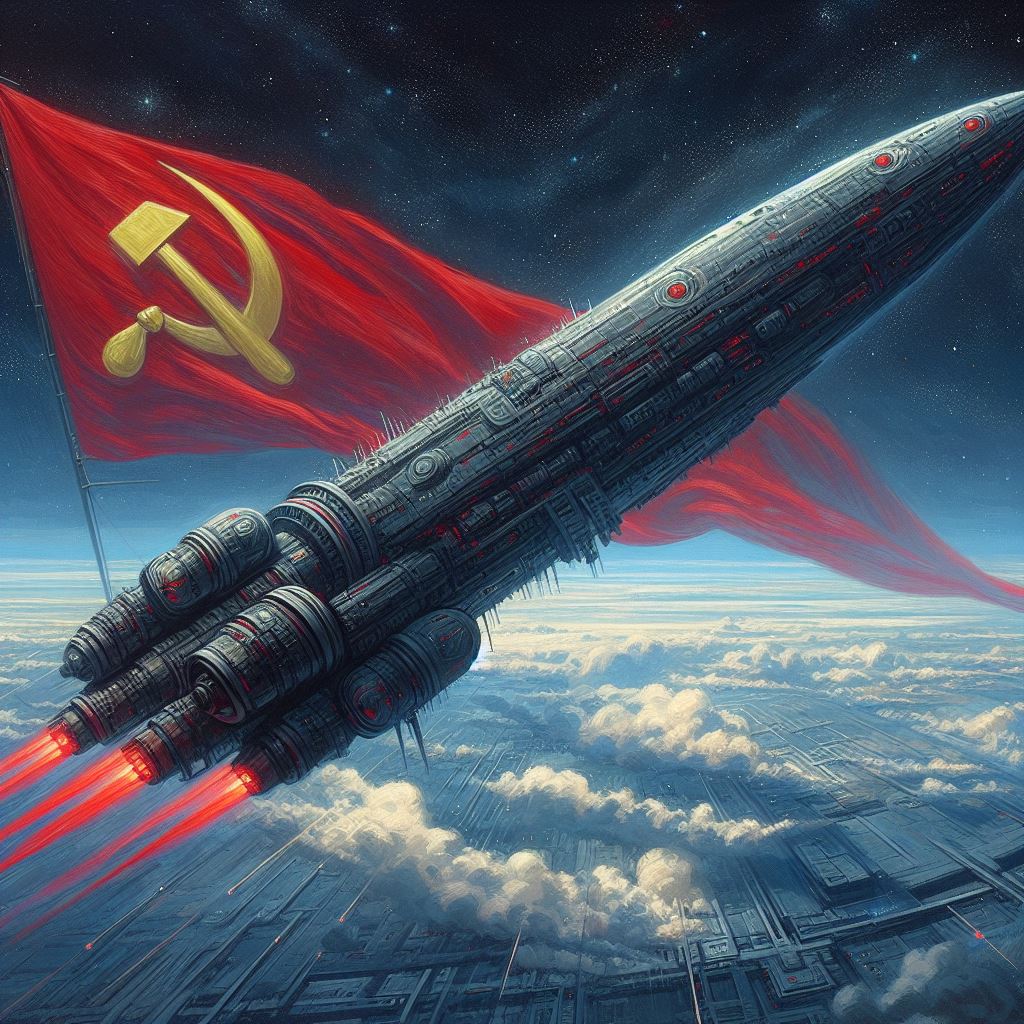I’ll explain this as quick as I can. Basically the bourgeoisie that own the major studios are so obsessed with profit that they make blatantly unsustainable decisions like overmonetization and shipping unfinished games every few years. Now look what’s happening, the studios have no choice but to lay off employees to recoup the costs they inflicted upon themselves and the worst affected are the fired employees naturally.
This is honestly infuriating and insulting as someone who’s been a massive video game fan since 2019 because the franchises I took a liking to (especially Halo) had countless labor and talent (stretching decades in some cases) have been completely gone to waste publishing cookie cutter generic dogshit games for the c suite’s next payday.
Indies are no better. They also suffer from the problem of shipping unfinished games but unlike their AAA counterparts, they suffer from genuine lack of time and resources to deliver games in a timely manner. So the whole “go indie” is basically lesser evil.
Come to think of it Capitalism actually enables and rewards such incompetence as long as profits are high.
There’s a related dynamic to the movie industry as well. You see constant remakes, sequels, and reboots, because these are considered a safe way to ensure profit. It’s very hard to make a show that has any fresh ideas nowadays.
It’s not just a theory, this is literally what happened to ZAUM and Disco Elysium. The most outwardly leftist studio was destroyed in the most obscene way by capital.
The most outwardly leftist studio
Source?
If you have 2 hours and a half: https://youtu.be/JGIGA8taN-M
If you want a 15 minute overview: https://youtu.be/k7Xu4GvpN9U
There’s infinite articles over the webz, but I find hard to navigate them.
Edit: this is about the capitalist coup. This is one about them playing rpg between friends in disco elysium universe before zaum was a thing. https://www.gamesradar.com/the-making-of-disco-elysium-how-zaum-created-one-of-the-most-original-rpgs-of-the-decade/
I found YouTube links in your comment. Here are links to the same videos on alternative frontends that protect your privacy:
Link 1:
Link 2:
Capitalism ruins everything it touches
someone who’s been a massive video game fan since 2019
I’ve been playing counter strike since 1999. I played Counter Strike 2 once, deleted it immediately afterwards and never played counter strike again.
I’ve been an Age of Empires fan since the first one. I played AoE4 quite a bit also, but then the “meta” became the end all and be all and I found myself watching youtube videos to learn how to play, when before I’d just experiment myself. Stopped playing that too when I realised how silly it is to be actively learning something that should be fun.
I played Diablo and Diablo 2/LoD a lot. One of my favourite games. Then Diablo 3 came out, I tried the demo and never installed the main game. Diablo 4 I won’t touch with a laser.
I haven’t played video games in over two years. The last game to catch and hold my interest (couple of years ago) was Stellaris, cause I liked the atmosphere: looking at planets, space ships, nice soundtrack playing in the background. The other game was Hell Let Loose (and to lesser extent Post Scriptum) cause I like WWII. But I quickly got bored because nobody actually wanted to play the game, but just run around and shoot like a headless chicken.
After years of not playing anything, I recently installed Mini Metro, and it’s just about all I can take. I also enjoy FTL, although that can get pretty stressful.
There’s not really a point to my post except to say that if people stop playing video games, I understand why.
Gacha games drain your soul and money
Oh yeah. Fuck Genshin
Exactly. And this is true of all aspects of our lives, too:
No matter if you’re passionate about cooking or basketball or videogames, if you pursue your passion thoughtfully and honestly enough, you eventually develop a serious awareness that capitalism is making everything worse for the sake of profit. (source)
I think the trick is to recognize that the solution is to move past capitalism into a collective model of ownership, and not bemoan some idealized past where small creators were able to create good game — a reactionary, petty bourgeois fantasy. As you highlighted, indie games are not above the pressures of capitalism.
Holy shit the angry gamer to communist pipeline is real.
the bourgeoisie that own the major studios are so obsessed with profit that they make blatantly unsustainable decisions like […] shipping unfinished games every few years. Now look what’s happening, the studios have no choice but to lay off employees to recoup the costs they inflicted upon themselves and the worst affected are the fired employees naturally.
Kerbal space program 2 in a nutshell.
That makes me so mad, it would have been so good if it could have been finished.
Basically the bourgeoisie that own the major studios are so obsessed with profit that they make blatantly unsustainable decisions like overmonetization and shipping unfinished games every few years.
This is because most games now cater to an online-only, usually free to play (although it’s not always the case), multiplayer market where there is battlepasses, microtransactions, and whatnot. So that most people pay for cosmetics (or even gameplay advantages, thus making the game pay-to-win), so that the company can earn the most revenue. Being unfinished is only a side-effect due to time-crunching and inexperienced developers.
Now look what’s happening, the studios have no choice but to lay off employees to recoup the costs they inflicted upon themselves and the worst affected are the fired employees naturally.
They lay off employees because full-time employees are entitled to benefits such as sick leave, overtime pay, etc. What most studios are doing nowadays is shifting to contract work, where contractors get paid much less, and most of them are inexperienced because most game companies still use proprietary engines instead of an engine most people know i.e. Unreal Engine 5. This is the cause of unfinished products, but it doesn’t even matter because you paid for the product, and thus they get revenue. Cyberpunk 2077 was already profitable before it was launched. So the product, despite being botched and half-baked, was already profitable.
Indies are no better. They also suffer from the problem of shipping unfinished games but unlike their AAA counterparts, they suffer from genuine lack of time and resources to deliver games in a timely manner.
That is true. Indie developers are petit-bourgeois anyways. We only support them because there is genuine risk and they will fail if they do not deliver a quality product. This is why we tend to trust indie developers. Nonetheless, it is not like most of them don’t want their product to generate revenue. If they never wanted revenue, they could release for free or open-source it, like what mods typically are.
Games are shifting from where the product matters to the service. Everything you interact with the game requires spending, and spending people will do. Not most, but those who are suckered in definitely will. They generate enough profit where if the product is half-baked, it is fine to leave it as such, or leave a skeleton crew to update the game and make it in a serviceable product years later. You do not own the game anymore. You only own the lease to play the game for a (supposed) indefinite amount of time, until the developers decide to cut it completely from the library of Steam, Epic Games Launcher, etc. This is where gaming is going.
Indies are no better. They also suffer from the problem of shipping unfinished games but unlike their AAA counterparts, they suffer from genuine lack of time and resources to deliver games in a timely manner. So the whole “go indie” is basically lesser evil.
I don’t think I would have played some games I liked as much if they were shipped finished, as waiting for a new version which improved and expanded the game was always a part I liked about some indie games I played.
I wouldn’t have played Rimworld nearly as much, for exaple, if it had just come out fully formed. But the way it was released I could enjoy it thoroughly, stop for a while untile the next update and then come back to something that I liked and that was now much better than before.
If the world became fully communist now I would still like if such things still happened. Although for AAA games they should definitely be properly released, while also taking the views and ideas of those working on it into account to some extent as well. Even if usually only meant that they chose the person that would direct it and such.
Hopefully under communism video games that shaped millions of childhoods and years of video game history get preserved for future generations.
Not only preserved but made open source so the communities around them can thrive and even push those games to the limits of what people want.
Thinking about it there is not only the possibility of open source minecraft, with groups getting toghether to improve its code, but also people designing computers whose only job is to play minecraft, and the games built on that code, as efficiently and cheaply as possible.
possibility of open source minecraft,
Have you heard of minetest?
I don’t think I would have played some games I liked as much if they were shipped finished, as waiting for a new version which improved and expanded the game was always a part I liked about some indie games I played.
I think I agree with this, most of my favourite games right now (Dyson Sphere Program, Hades) are indie early-access games that would not have been possible in the “old style”. Those both come from studios that aren’t under real time-crunch and actually have relatively good working environment by all accounts. DSP is a small passion project from a Chinese studio that only works on that for example.
Your example, Rimworld, is probably my favourite game of all time. Part of that is the development process, but also the tremendous support from the community. Rimworld without mods would not be the same game.
Big studio AAA games could do those things too, but it is a relative rarity due to how much more profitable making a big GaS and/or DLC platform can be.
Omg yes. Also, pointless sequels all the time along with updates which ruins the series or game, FnaF being prime example I can think of having at least like 20 games along with other material when the series should have ended in 2016 at SL, but no, they decided to make it like your average movie which was amazing during first few sequels, but then series got destroyed with 10 another sequels no one asked for. Not to mention what they did with ARK also.
I literally hate this so much, why can’t they simply leave the good series alone, same with movies?
4 5 and Infinite basically sealed the fate of Halo. Should’ve ended at Reach or at least got Halo 4 release at later dates.
Indis are a little better. At least there is a chance they will make something new and interesting instead of the 7th version of the same shooter.
Still chasing that dollar bill though.
ES6 please
As an anti-capitalist I think that’s an undue slight on capitalism. Prioritising profits doesn’t suddenly turn you into a rabid animal that would give up $5 in 5 minutes for $1 right now. What you’re ascribing blame to over layoffs is more than capitalism, it’s a particular brand of mad short-sightedness uniquely observed in US big tech & gaming sectors.
The reality is that under US employment law, there is very little risk in disposing of workforce assets just to print a lower P/E ratio for the quarter. The company can just rehire the same staff again later if they want. It’s an infinitely more solvable problem than capitalism: pass employment reforms. Studios not having a choice is utter nonsense. The choice is to stop working counter to the mutually aligned long-term interests of literally everyone - the company, its staff, its customers. But they kept choosing some other wacky shit instead.
Prioritising profits doesn’t suddenly turn you into a rabid animal that would give up $5 in 5 minutes for $1 right now.
It literally does.
No, the proposition makes no sense from a capitalist perspective. We can be united against capitalism without turning it into a caricature, that doesn’t serve to convince anyone of anything.
I know what you said is a bit of an exaggeration, but it is true that capitalists will prioritise short-term profits over long-term ones. That’s why capitalists will buy a factory, sell of its machinery, fire all the workers, demolish the building and sell the land rather than run the factory so it can continue producing.
Layoffs in the context of gaming/big tech don’t really produce profits though, they reduce expenditure such that existing profits (generated by games already shipped, for which the development cost is already summarily incurred) look more attractive to potential investors. The only participant that would truly stand to profit more from this type of action is the exec attempting to scam investors by exiting during a period of artificially inflated valuation
OK, layoffs might have been a bad example, here’s a better one. A company choosing to do 0-day DLCs, which might increase their profits in the short term, but wuld do damage to their image and game long term. Or a company choosing to include micro-payments and microtranscations in their game (Diablo 3 and 4), which in the short term looked good cause of profits, but in the long term made people less excited for the game or new installments, basically killing the game. So rather than continuing to release a good game they can sell to a lot of people, they chose to make as much money as possible on the current edition without thinking of future profits with subsequent installments of the game.
I certainly take your general point about 0day DLC’s and MTX being bad and detrimental to games as a whole. I’m not sure about D3/4 as examples of this, their monetisation is limited to paid cosmetics that aren’t even substantially better than the free ones. The launch reviews were positive, the current reviews are positive, it has maintained a player base. The main current points against it are raised by engagement farmers, to farm engagement.
That’s all beside my original point though - OP post uses the title “capitalism ruined gaming” to make a specific point about the current round of industry layoffs. But the layoffs aren’t a product of capitalism - they don’t truly serve anyone’s interest or profit motive, including the developer/publisher. It’s just weird arbitration of profits for no real reason - the inability to sit on their hands when that is the most profitable course. It’s a practice only really done in the US, resulting from that gaming is excessively profitable (i.e. risking some long-term profit isn’t of major consequence) and that a huge proportion of employment in the US is on an at-will basis (i.e. laying people off for any reason carries little if any risk). So while we should retain the goal of an ultimate dismantling of capitalism, that isn’t necessary to stop the issue OP is lamenting - just do what the rest of the capitalist world does currently and have some kind of baseline employee protections.
But the layoffs aren’t a product of capitalism - they don’t truly serve anyone’s interest or profit motive,
What do you mean? Layoffs are the quickest way to have a larger bottom line, because they reduce labour costs in the immediate term. It is very easy to then hire more people again once the quarterly or year-end review is over. It’s all about pleasing the shareholders and making yourself look like a good executive.
laying people off for any reason carries little if any risk
Precisely.
just do what the rest of the capitalist world does currently and have some kind of baseline employee protections.
First you say it’s not capitalism’s fault but then you suggest that capitalism should be reigned in a bit as a solution.
Prioritising profits doesn’t suddenly turn you into a rabid animal that would give up $5 in 5 minutes for $1 right now.
EA laid off 670 employees just recently, yet shareholders have reached a profit of $1.5 billion It is clear that with this strategy, combining with the fact that corporations are switching to contract work (lower wages, no benefits), shows that they care about profit rather than delivering a decent enough game.
Layoffs are a consequence of capitalism, not the root cause. Think about it. If you can make more profit by hiring contractors instead of employees, you might as well. You can make a higher profit, even if the product is half-baked and unfinished. And if you’re kind, you can send a skeleton crew to clean up the mess by updating the game to a working state and eventually they will move onto something else. There’s been a recent trend of unfinished, half-baked products coming to market, such as Battlefield 2042, Halo Infinite, etc.
It’s an infinitely more solvable problem than capitalism: pass employment reforms.
The employment in this case is replacing full-time employees (usually with a wealth of knowledge especially in regards to game engines, art, etc.) with contract workers. It is more profitable in this regard. Employment reforms won’t fix this. The fundamental issue is the game being released is gaining profit at a rate where the game itself is virtually unprofitable. Cosmetics, Gameplay Advantages, Microtransactions, all of these contribute to the profit of the game in some way. Hence why employees are redundant, and thus they are laid off, or filed for redundancy.
The choice is to stop working counter to the mutually aligned long-term interests of literally everyone - the company, its staff, its customers.
The long-term interest of corporations is to gain as much profit as it can before the company sinks to the ground. The shareholders are problem. Capitalism is the problem. Do not blame the layoffs. Layoffs are a consequence of capitalism, it forces workers to become the reserve army of labour. Please, I recommend you read Marxist theory before claiming that capitalism isn’t the problem. With everything that exists in our society, Capitalism is always the problem.
The fundamental issue is the game being released is gaining profit at a rate where the game itself is virtually unprofitable.
I don’t believe this. Gaming is one of the biggest and most profitable industries in the world, and MTX aren’t principally responsible for that.
The developer that participates in cyclical layoffs (read: the average publicly traded one based in the US) is more of a failed capitalist. That they profit from the failure doesn’t change that it fundamentally is one. Franchises have been worth billions each since Guitar Hero, ruining them to reduce short-term company expenditure is shooting yourself in the foot. Outside the US (but still under capitalism), it doesn’t really happen.
If this is an effect of capitalism, it is only insofar as US capitalists have the leeway to fuck around and find out, because what they find is still profitable (largely due to complacency of gamers). But that leeway is a product of regulatory failure. It’s ridiculous for workers to be thrown aside to boost profits when this purpose isn’t actually achieved.
Gaming is one of the biggest and most profitable industries in the world
It is, but the profit doesn’t come from sales, but rather recurring systems as a result of battle-passes or one-time purchases for microtransactions. I said virtually unprofitable because a lot of multiplayer games are now free-to-play, take any game, Call of Duty, Halo, etc. Most likely there is a free-to-play game available in the multiplayer sector. With that multiplayer sector, they are now gaining revenue not from sales (as it is impossible), but rather from recurring payments or microtransactions. Therefore most of the revenue that comes from games today is not from sales of a particular commodity (Note that when you purchase a game digitally, you do not own the game, you own the lease for a (supposed) indefinite amount of time, therefore it cannot be considered a ‘sale’ since you do not own your game), but rather the payment of certain cosmetics or a battlepass which is only available within that specific game. You do not own the cosmetic, you just own the lease to it.
When you shift your focus from ‘owning’ a game (as it is a lie for PC gamers, for console gamers, it makes a bit more sense), it is clear that revenue now is generated not from a game sale.
The developer that participates in cyclical layoffs (read: the average publicly traded one based in the US) is more of a failed capitalist.
The corporations that run most of the game market (Ubisoft, Activision Blizzard, Valve, etc.) are not headed by one person. They are held by shareholders, i.e. capitalists, not a single capitalist. Shareholders do not care about the quality of a game, rather how much revenue it generates. If it does not generate more profit than the last game, then there will be consequences despite the game being profitable (from sales or otherwise).
Franchises have been worth billions each since Guitar Hero, ruining them to reduce short-term company expenditure is shooting yourself in the foot.
Guitar Hero is a dead franchise, for the most part. A lot of franchises are dead. Why is that? They’re not profitable enough to keep themselves running. No one aside from Guitar Hero fans wants to play Guitar Hero. Any franchise you can think of, Call of Duty, Assassin’s Creed, Battlefield, these are being milked, because it is a safe bet. Even a singleplayer experience like Assassin’s Creed has microtransactions. And their game instead of centering around a fun experience, it is centered around wasting your time as much as possible or force yourself to do side quests so that you can get the level you want. Not only that, most of the Assassin’s Creed games require a third party DRM tool, and tampering with your game may result in your account being suspended, or your game gone all together. This is the turn-around we see for games. Games are not calculated per sale, as it is useless (or often a minority in the game’s revenue all together) but rather how much money it can accumulate based on microtransactions, battle-passes, etc.
If this is an effect of capitalism, it is only insofar as US capitalists have the leeway to fuck around and find out, because what they find is still profitable (largely due to complacency of gamers). But that leeway is a product of regulatory failure.
This is liberal speak. I’m astonished that you can say this and not see that capitalism is to blame. Every capitalist is concerned with one thing, profit. I already said what I said earlier, that being that capitalists care about how much revenue it generates. It is not based on regulatory matters, rather how much capitalists have control over how people play games and consume their product. Saying that is an effect of regulation and not capitalism is advocating the same as social-democracy, removing the “bad” aspects of capitalism whilst still keep capitalism in place.
It’s ridiculous for workers to be thrown aside to boost profits when this purpose isn’t actually achieved.
I provided two links which shown the exact opposite. Please, do some research.
I’m not seeking to make any point about MTX or game ownership. I’m seeking to respond to OP’s central point about current layoffs as an example of capitalism ruining games. MTX is far from the majority of revenue, though. People don’t even play the games they buy, let alone buy MTX at an average rate which exceeds the license cost.
This is liberal speak. I’m astonished that you can say this and not see that capitalism is to blame.
I’m assigning some blame to capitalism in my sentence, the one you quoted. I’m saying the regulatory failure is the mechanism by which the crux of the issue, the option to lay off without cause, is enabled. The specific failure I mean is the failure to require employers to have a good reason to end the work contracts they offer. It is fair to lay someone off for a good reason. It is fair to make their position redundant under macroeconomic circumstances like described in the Business article, if the employees are paid out. These statements are true under many kinds of organisation of government. But similarly under any organisation, including a capitalist one, it is not fair to broadly lay people off without cause where the positions are not redundant; rather the associated payroll expense is temporarily inconvenient, or not preferable to the similarly temporary and unrealised shareholder profits. In the case of a capitalist organisation, it’s because it’s not good for sustainable ongoing business, due to the compromise on future production. These are austerity measures enacted without conditions of austerity. The measures themselves will induce austerity in those businesses. That is antithetical to capitalism. And it is something that can be legislated against today for the protection of the employees against becoming collateral damage, without having to compel the people into revolutionary action. It is the position already held by the majority currently. It is already the status quo in the capitalist world outside America. Or is your position that only America is truly capitalist?
What I’m advocating for is direct action, over using shaky reasoning to try to compel revolutionary action. Because if your own goals are achievable within the framework of capitalism, why would the average person revolt? That’s what I’m telling you is the case. Indeed it isn’t only achievable, it is achieved. I am anti capitalist because my goals are not achievable in a capitalist framework. If directing my actions most productively within the framework in which I exist makes me a liberal, tell me your plan for direct action on this issue and I’ll be happy to consider it on its merits.












